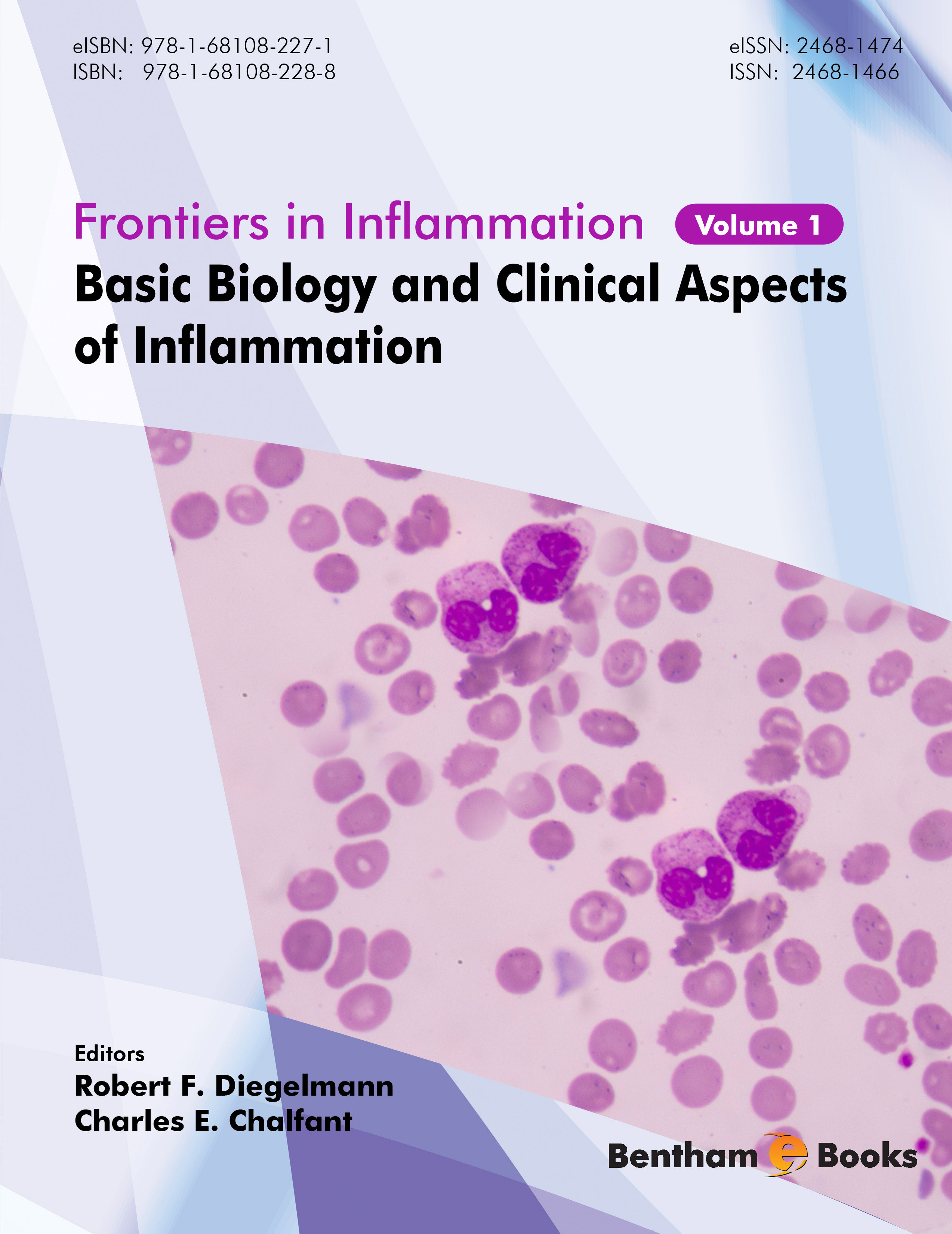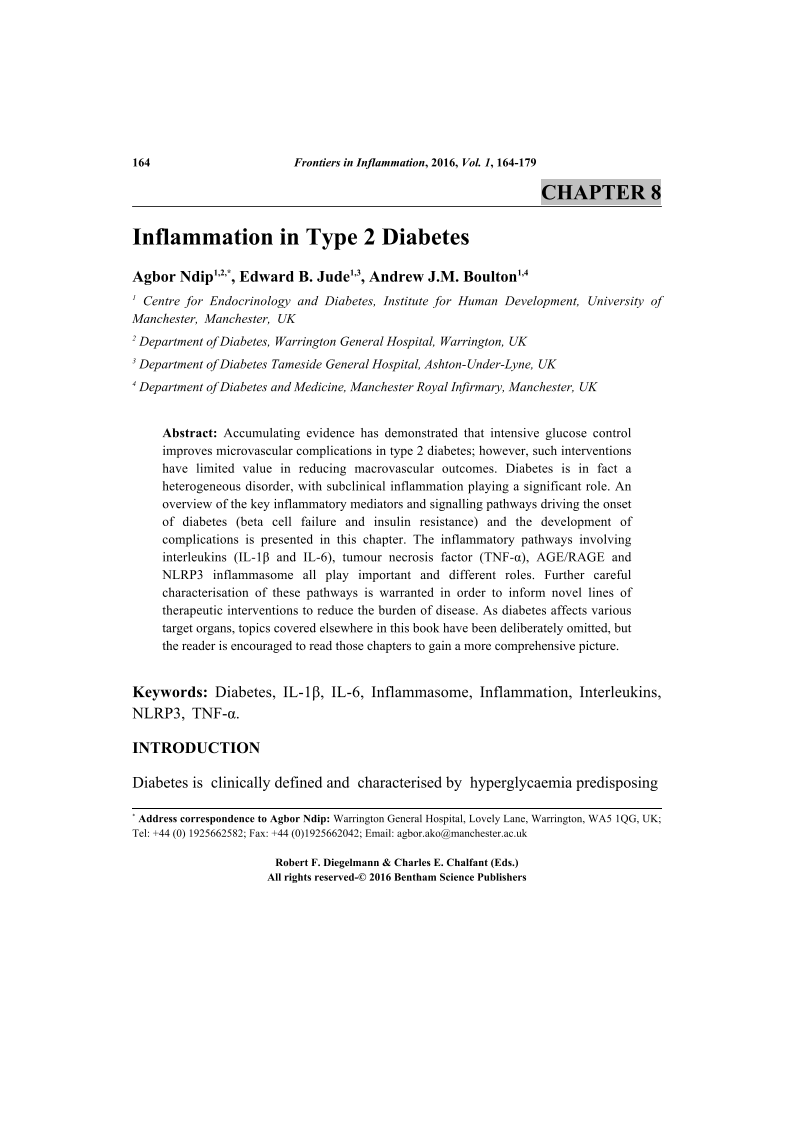Inflammation in Type 2 Diabetes

- Authors: Agbor Ndip1, Edward B. Jude2, Andrew J.M. Boulton3
-
View Affiliations Hide Affiliations1 Centre for Endocrinology and Diabetes, Institute for Human Development, University of Manchester, Manchester, UK 2 Centre for Endocrinology and Diabetes, Institute for Human Development, University of Manchester, Manchester, UK 3 Centre for Endocrinology and Diabetes, Institute for Human Development, University of Manchester, Manchester, UK
- Source: Basic Biology and Clinical Aspects of Inflammation , pp 164-179
- Publication Date: March 2016
- Language: English
Inflammation in Type 2 Diabetes, Page 1 of 1
< Previous page | Next page > /docserver/preview/fulltext/9781681082271/chapter-8-1.gif
Accumulating evidence has demonstrated that intensive glucose control improves microvascular complications in type 2 diabetes; however, such interventions have limited value in reducing macrovascular outcomes. Diabetes is in fact a heterogeneous disorder, with subclinical inflammation playing a significant role. An overview of the key inflammatory mediators and signalling pathways driving the onset of diabetes (beta cell failure and insulin resistance) and the development of complications is presented in this chapter. The inflammatory pathways involving interleukins (IL-1β and IL-6), tumour necrosis factor (TNF-α), AGE/RAGE and NLRP3 inflammasome all play important and different roles. Further careful characterisation of these pathways is warranted in order to inform novel lines of therapeutic interventions to reduce the burden of disease. As diabetes affects various target organs, topics covered elsewhere in this book have been deliberately omitted, but the reader is encouraged to read those chapters to gain a more comprehensive picture.
-
From This Site
/content/books/9781681082271.chapter-8dcterms_subject,pub_keyword-contentType:Journal -contentType:Figure -contentType:Table -contentType:SupplementaryData105

